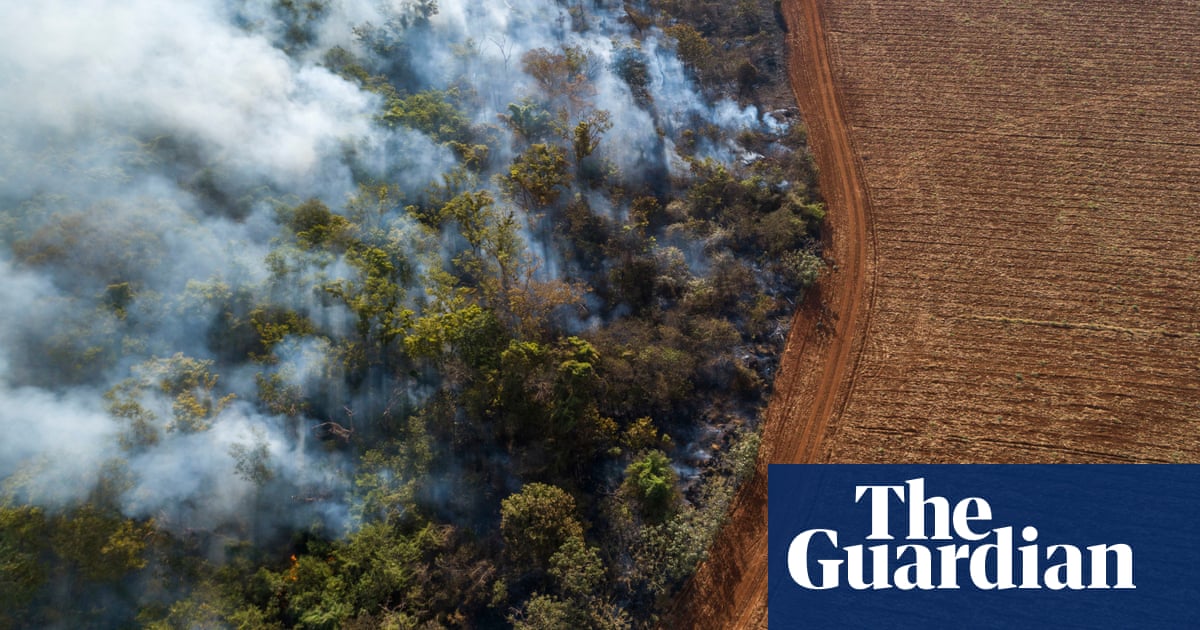
A report by Members of Parliament has revealed that consumption in the UK is causing an unsustainable impact on the world, with a significant contribution to deforestation.
Certain goods, like soya, cocoa, palm oil, beef, and leather, could potentially be linked to deforestation. The environmental audit committee has discovered that the United Kingdom’s deforestation footprint per ton of product consumed is larger compared to other nations, such as China. This has been deemed as “unsustainable”. A deforestation footprint is comparable to a carbon footprint and indicates the amount of deforestation that takes place for every ton of product consumed. Through examining trade patterns for goods associated with significant levels of forest destruction, scientists have determined the deforestation footprints of various countries.
The government’s recent announcement stated that products obtained through illegal deforestation will no longer be allowed in the supply chain. However, this measure only addresses a portion of the issue since a significant amount of deforestation is legally permitted in the countries where it takes place.
On Thursday, the report cited Client Earth’s statement that the ban creates negative motivations for exporting countries to repeal laws that safeguard forests, thus making deforestation permissible and allowing the import of related goods into the UK.
The law, which was revealed in December, has yet to be approved by parliament. The ban in the UK has faced backlash for not covering commonly consumed goods like coffee.
The environmental audit committee of MPs is urging ministers to create a goal for lowering the UK’s contribution to global deforestation, as well as a Global Footprint Indicator to show the public this impact. According to the report, forests are home to 80% of the planet’s land-based biodiversity, sustain the livelihoods of 1.6 billion individuals, and offer essential ecosystem services that benefit both local and global economies.
11% of the world’s carbon emissions come from deforestation. A report from RSPB and WWF revealed that the UK’s imports of seven commodities that are linked to deforestation – soya, cocoa, palm oil, beef and leather, paper, rubber, and timber – make up 88% of the country’s annual land footprint. The study also found that 40% of the UK’s overseas land footprint is in countries with a high risk of deforestation, inadequate governance systems, and substandard labor practices.
The report is calling for the government to pass laws requiring public entities to only purchase forest-risk goods that are certified as sustainable and not contributing to deforestation in sensitive regions. This would ensure that the UK government does not support unsustainable deforestation through its own purchases and can serve as a role model for other industries. The report also requests that the UK timber regulations mandate the sustainable harvesting of all imported timber, not just prohibiting illegally harvested timber from being imported.
Members of Parliament expressed concern about the dangers faced by Indigenous communities who safeguard numerous vulnerable forests worldwide. Despite their expertise and valuable insights, their voices are often disregarded and they are deprived of their land, frequently being forced out of their ancestral territories. According to Global Witness, one person is killed every other day while defending land and the environment. The report emphasizes the role of Indigenous peoples as guardians of the Earth’s forests and their extensive knowledge on biodiversity and ecosystem patterns. It stresses the importance of enabling their full participation in negotiations to address deforestation.
The head of the panel, Philip Dunne MP, declared that the level of consumption in the UK is causing harm to the environment. It is imperative that the UK does not allow an influx of products that endanger forests around the world, the people who depend on them for their livelihoods, and the delicate ecosystems they support. Despite pledges made at Cop28 to increase investments in reforestation and the Amazon Fund to slow down global deforestation, concrete actions must be taken within the UK to make a significant impact.
The government’s goal and promised dedication at Cop26 to stop deforestation by 2030 was greatly appreciated, but it is currently off track. The proposed legislation to mandate certification of “sustainable” products before they can be sold in UK markets was also welcomed, but the necessary implementing legislation has yet to be presented. There seems to be a lack of urgency in addressing the issue of deforestation, which needs to align with the strong language used.
“Countries all around the world contribute to deforestation, and the international community of course needs to do much more to tackle deforestation. Yet on some measures the intensity of UK consumption of forest-risk commodities is higher than that of China. This should serve as a wake-up call to the government. To demonstrate genuine global leadership in this critical area, the UK must demonstrate domestic policy progress, and embed environmental and biodiversity protections in future trade deals.”
The Department of Environment, Food and Rural Affairs has been reached out to for a response.
Source: theguardian.com
















